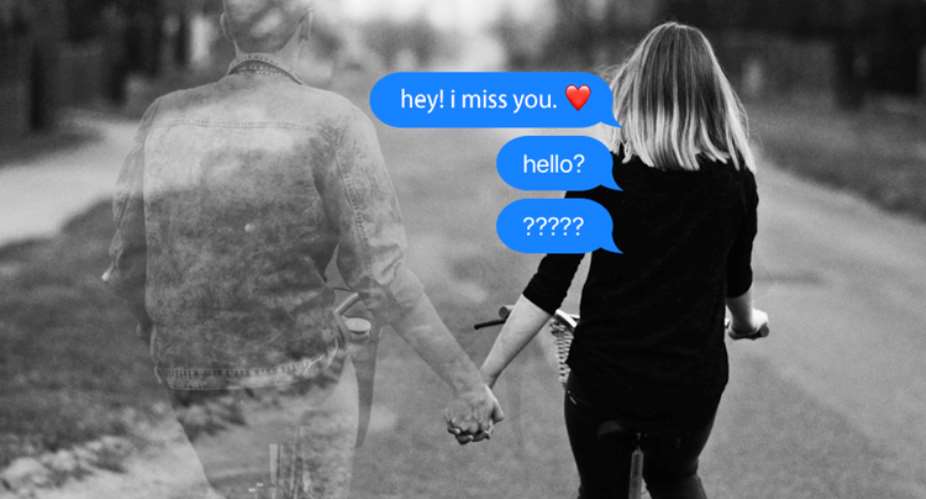Ghosting, the act of abruptly terminating communication with someone without explanation, has become an increasingly familiar occurrence in the realm of modern dating and social interaction. This phenomenon, often leaving the ghostee feeling a whirlwind of negative emotions such as confusion, hurt, and rejection, has sparked serious debates about emotional well-being and interpersonal respect. Whilst academic interest in the emotional experiences associated with ghosting is slowly growing, it is an area still ripe for exploration. In this article, we delve deeper into the psychological dynamics of ghosting, examining it from both the perspective of the ghoster and the ghostee, and providing guidance on how to manage and understand such experiences.
At its core, ghosting involves one person in a relationship abruptly disappearing without providing closure or an explanation. Whilst the reasons behind this behaviour can vary, they often boil down to factors such as the convenience of avoiding uncomfortable discussions, a lack of adequate communication skills, or a misguided intention to protect the other person’s feelings by avoiding confrontation. However, as comforting as these reasons might seem to the ghoster, it’s essential to remember that open and honest communication provides a more empathetic and respectful approach to resolving relationship issues.
Being ghosted can cause a whirlwind of negative emotions. The person left behind often grapples with feelings of rejection, abandonment, confusion, and loss — all without closure. Meanwhile, ghosters aren’t immune to emotional consequences. They might struggle with guilt over their actions, regret for the hurt caused, and an underlying sense of tension due to unresolved matters. Recent academic studies have begun to delve into these emotional repercussions, painting a clearer picture of the profound psychological impact ghosting can have on both parties involved.
Ghosting, by its very nature, leaves relationships unresolved, fuelling a cycle of distress and emotional confusion. It dismisses the other person’s feelings, thoughts, and perspectives, leading to a stark lack of emotional accountability. This dismissal can cause long-term emotional damage, impacting a person’s trust in future relationships and their overall self-esteem. The lack of resolution also breeds a chronic sense of uncertainty and distress, which can continue to affect individuals long after the incident.
Understanding the emotional implications of ghosting is the first step in developing resilience against such events. This awareness allows individuals to better prepare for and handle potential ghosting scenarios. Strategies for mitigating the emotional pain caused by ghosting can include seeking support from a trusted network of friends or a mental health professional, focusing on self-care activities that foster emotional well-being, and working on acceptance and forgiveness towards the ghoster.
Ghosting is a clear example of a negative relationship transition. On the other hand, learning how to manage positive relationship transitions can lead to personal growth, emotional maturity, and respectful interactions. These transitions could involve mustering up the courage for difficult but necessary conversations, setting clear and respectful boundaries, or seeking professional help to navigate emotional complexities. Well-managed transitions not only respect the emotional well-being of both parties involved but also set a positive precedent for future relationships.
Ghosting, whilst a common phenomenon in the modern dating landscape, is a damaging practice that can leave long-lasting emotional scars. With the rise in research and awareness about the emotional experiences associated with ghosting, we can equip ourselves to handle such situations and navigate future relationships with greater care and respect.





 List of 24 ministerial nominees approved by Parliament
List of 24 ministerial nominees approved by Parliament
 You were my inspiration, made me who I am today – Lilian Kumah
You were my inspiration, made me who I am today – Lilian Kumah
 Rainstorm destroys Hohoe E.P. Senior High School building
Rainstorm destroys Hohoe E.P. Senior High School building
 John Kumah strongly supported me to become NPP flagbearer – Bawumia reveals
John Kumah strongly supported me to become NPP flagbearer – Bawumia reveals
 Late John Kumah urged me to run for NPP flagbearer, strongly supported me — Bawu...
Late John Kumah urged me to run for NPP flagbearer, strongly supported me — Bawu...
 Akufo-Addo appoints Joseph Kpemka as Deputy MD of BOST
Akufo-Addo appoints Joseph Kpemka as Deputy MD of BOST
 Ablakwa petitions CHRAJ to investigate sale of SSNIT's hotels to Rock City Hotel
Ablakwa petitions CHRAJ to investigate sale of SSNIT's hotels to Rock City Hotel
 MoF to provide new bailout for defunct Gold Coast Fund investors – Bawumia revea...
MoF to provide new bailout for defunct Gold Coast Fund investors – Bawumia revea...
 OMCs implement price adjustments despite International petroleum price declines
OMCs implement price adjustments despite International petroleum price declines
 Petition to remove Kissi Agyebeng will disrupt operations of OSP – Martin Kpebu
Petition to remove Kissi Agyebeng will disrupt operations of OSP – Martin Kpebu
